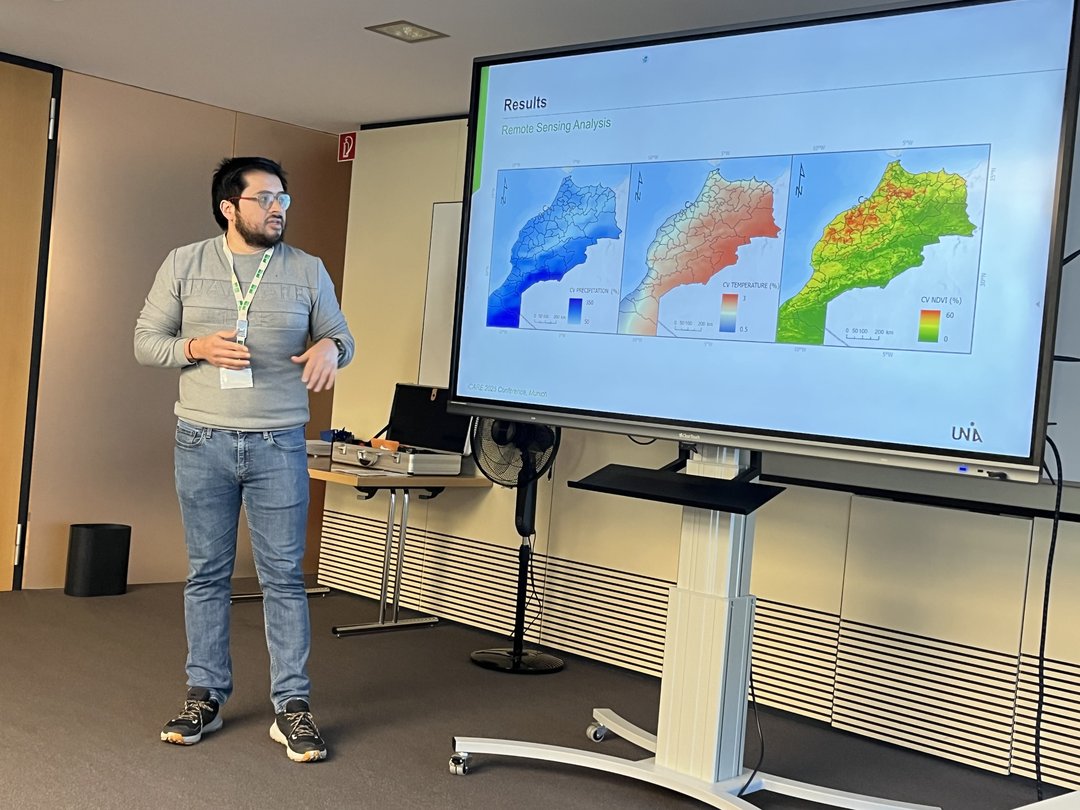CCR participates in the International Climate Resilience Conference (iCARE) 2025
The CCR made a notable contribution to the event, with five scientists representing the Centre in various sessions as participants or moderators. Additionally, Dr César Álvarez and Dr Harison Kipkulei presented research on climate impacts and implications for enhancing resilience among smallholder farmers in the Global South. Dr. Álvarez shared findings from a study on seasonal agricultural vulnerability in Morocco, which integrates remote sensing, farmer perceptions, and AI-based analysis to enhance understanding of climate risks. Drawing on survey data from more than 3,600 farmers and satellite observations, the research achieved high accuracy in identifying vulnerable areas. The study underscored how factors such as access to climate information, rainfall variability, crop rotation, and soil moisture critically shape resilience. These insights are intended to inform evidence-based climate adaptation and water management policies across arid regions of North Africa. Dr Harison Kipkulei presented research on the impacts of climate change on maize production systems in Kenya, emphasising strategies to reverse yield losses and promote innovative adaptation measures aimed at building a more resilient and sustainable agricultural future amid changing climatic conditions. In addition to the oral presentation sessions, the conference featured plenary discussions with leading climate scientists, as well as keynote speeches and poster presentations that encouraged interdisciplinary exchange and collaboration. A major highlight of the event was the adoption of the Munich Climate Resilience Initiative (MCRI). Among its key resolutions, participants issued a call to action to:
Prof. Markus Keck moderated a session on the topic: “From Resilience Governmentality to Resilience-in-the-Making”, whereby Prof. Angela Oels and Ms Alina Kaltenberg delivered a presentation on “Planned Relocation in the Eastern Caribbean as a Strategy for Climate Resilience? How Vulnerabilisation Leads to Disposability” at the session.




